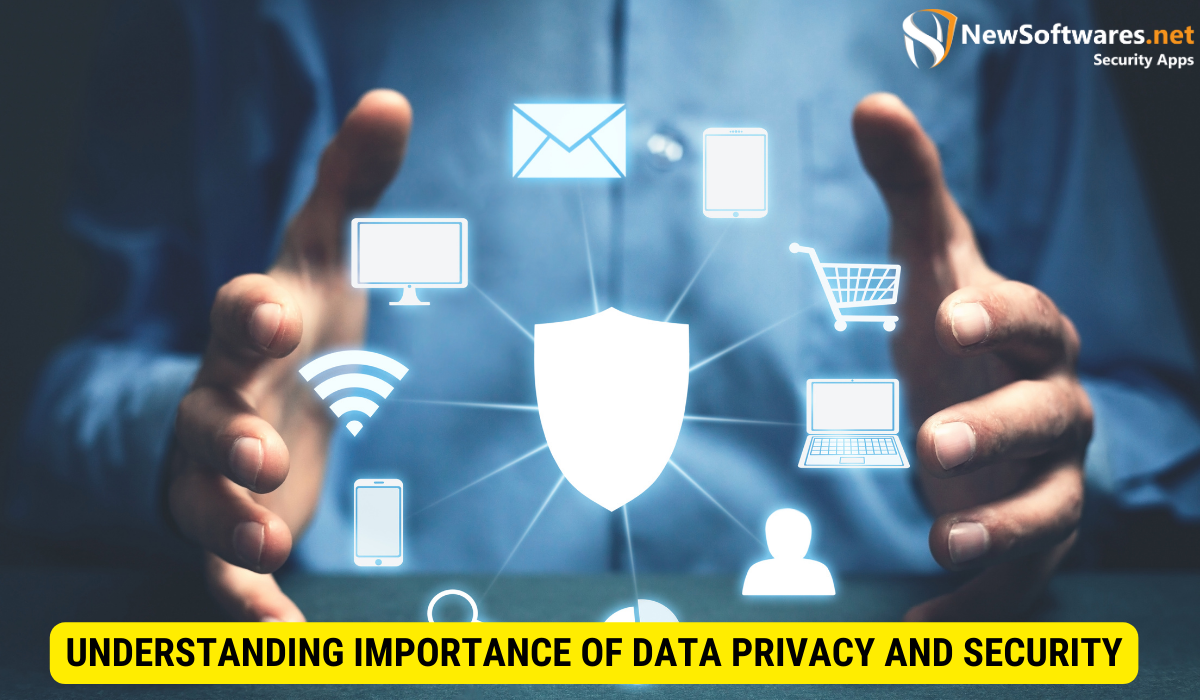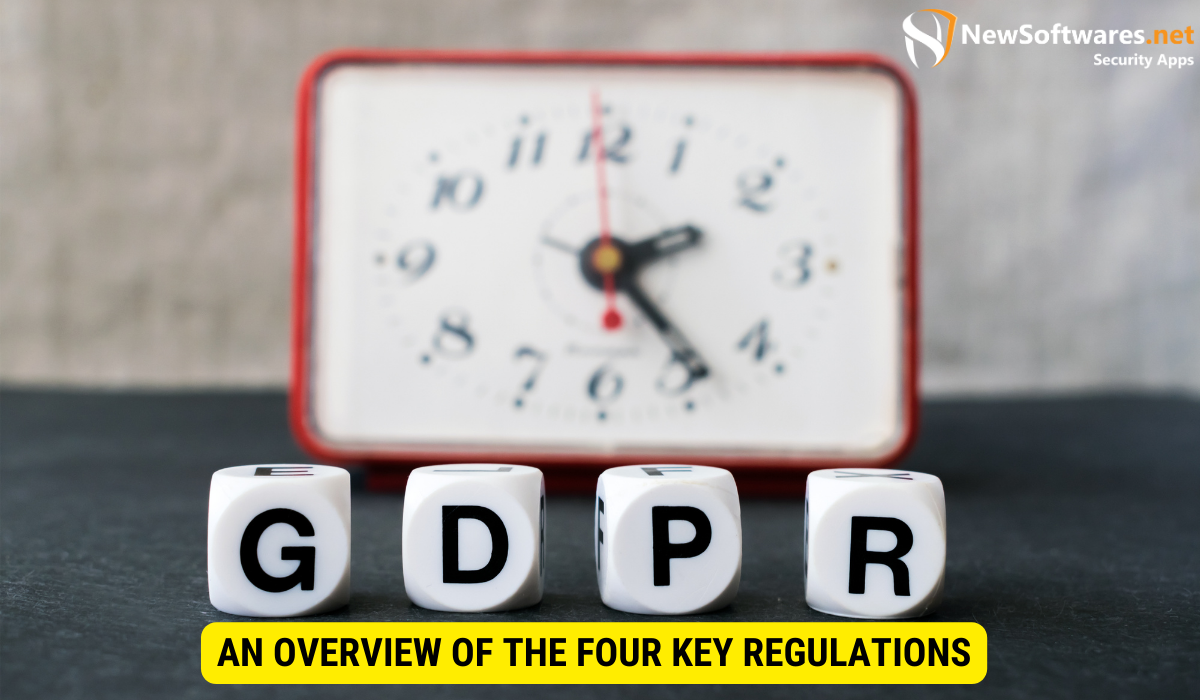The four key regulations that should be in place for the privacy and security of personal data are GDPR, CCPA, HIPAA, and COPPA. These regulations provide guidelines for data protection, consent, transparency, data minimization, and security measures to safeguard personal data and ensure compliance with privacy laws. Organizations should implement privacy policies, conduct regular audits, and provide employee training to adhere to these regulations and protect individuals’ data privacy and security.
“Data privacy and security are paramount in today’s digital age. With the ever-increasing amount of personal data being collected and processed, it is crucial to have regulations to protect individuals and ensure their information is handled responsibly. Together, we will dive into the four key regulations that govern privacy and security of personal data, their main components, and how to ensure compliance.”
Understanding Importance of Data Privacy and Security

In today’s interconnected world, personal data plays a important role in various aspects of our lives. From online shopping to social media interactions, our personal information is constantly shared and stored. This data includes our names, addresses, financial details, and sensitive information such as health records. With the increasing number of data breaches and cyber threats, it is essential to prioritize data privacy and security.
Ensuring data privacy and safekeeping is crucial for individuals, businesses, and organizations. When organizations collect and store personal data, they are responsible for protecting it from unauthorized access or misuse. Failure to do so can result in severe consequences, including legal penalties, reputational damage, and loss of customer trust.
The Role of Personal Data in Today’s Digital Age
Personal data serves as the foundation of modern businesses and services. It lets companies personalize user experiences, offer targeted advertisements, and deliver tailored recommendations. Businesses can gain valuable insights into consumer behavior and preferences by analyzing personal data, allowing them to make knowledgeable decisions and improve their products or services.
However, this vast amount of personal data also poses a significant risk if mishandled or accessed by unauthorized parties. Cybercriminals continuously seek ways to exploit vulnerabilities and gain unauthorized access to personal data. This can lead to identity theft, financial fraud, and other malicious activities that can devastate individuals and organizations.
Why Privacy and Security Regulations are Necessary
Privacy and security regulations are necessary for several reasons. Firstly, they protect individuals’ fundamental rights to privacy and control over their personal information. In an increasingly digital world, where personal data is constantly being collected and analyzed, it is essential to have regulations in place that ensure individuals have the right to know how their data is being used and the ability to opt out if desired.
Secondly, privacy and security regulations provide a legal framework for organizations to ensure data protection and prevent illegal access or misuse of personal data. These regulations often require organizations to implement security measures, such as encoding and access controls, to safeguard personal data from cyber threats. By establishing clear guidelines and standards, these regulations help organizations mitigate risks and protect the privacy of their customers.
Lastly, privacy and security regulations help establish data sharing and transparency guidelines, fostering trust between businesses and consumers. When individuals know that their personal data is being handled responsibly and transparently, they are more likely to trust organizations with their information. This trust is crucial for businesses to thrive in today’s data-driven economy, enabling them to build long-lasting relationships with their customers.
An Overview of the Four Key Regulations

Privacy and security of personal data are paramount in today’s digital age. To address these concerns, several regulations have been put in place to protect individuals’ information. Let’s take a closer look at the four key regulations that are at the forefront of privacy and security:
Regulation 1: General Data Protection Regulation (GDPR)
Introduced by the European Union, GDPR sets strict guidelines on collecting, processing and storing personal data. It aims to harmonize data protection rules across EU member states and enhance the rights of individuals regarding their personal information. GDPR grants individuals control over their data and gives them the right to access, rectify, or erase their information. Organizations that handle EU citizens’ data must comply with GDPR or face substantial financial penalties.
Under GDPR, organizations are required to implement appropriate technical and organizational procedures to ensure the security of personal data. This includes encryption, access controls, and regular data backups. Additionally, GDPR mandates the appointment of a Data Protection Officer (DPO) for certain organizations to oversee data protection activities.
Regulation 2: California Consumer Privacy Act (CCPA)
The CCPA, enforced in California, aims to enhance secrecy rights and consumer protection for residents of California. It grants consumers the right to know what personal information is collected about them and to whom it is sold. Additionally, it allows individuals to opt out of data sharing and prohibits businesses from discriminating against those who exercise their privacy rights.
CCPA applies to businesses that meet positive criteria, including those with an annual gross revenue exceeding a specified threshold or handling a significant amount of personal data. These businesses must provide clear and conspicuous notices to consumers about their data collection practices and the rights they have under CCPA.
Regulation 3: Health Insurance Portability and Accountability Act (HIPAA)
HIPAA focuses specifically on safeguarding individuals’ health information. It applies to healthcare providers, health plans, and their business associates, ensuring the privacy and security of sensitive health data. HIPAA requires covered entities to implement privacy and security measures to guard health information from unauthorized access, use, and disclosure.
Under HIPAA, covered entities must conduct regular risk assessments to identify system vulnerabilities and implement appropriate safeguards to mitigate those risks. They must also provide individuals with notice of their privacy practices and obtain written consent before using or disclosing their health information for certain purposes.
Regulation 4: Children’s Online Privacy Protection Act (COPPA)
COPPA aims to protect the privacy of children under the age of 13 by placing specific requirements on online service providers. This regulation mandates obtaining parental consent before collecting personal data from children and imposes restrictions on the types of information that can be collected. Websites and online services directed towards children must comply with COPPA.
COPPA requires online service providers to provide clear and understandable privacy policies that outline the types of information collected from children, how it is used, and the steps taken to protect the information. It also requires implementing reasonable security measures to safeguard children’s personal data.
These four key regulations play a crucial role in safeguarding the privacy and security of personal data. By establishing clear guidelines and imposing penalties for non-compliance, they aim to create a safer and more transparent digital environment for individuals and organizations alike.
The Main Components of These Regulations
Each of these regulations shares common components that form the foundation of data privacy and security:
Consent and Transparency
Obtaining individuals’ informed consent and being transparent about how their data will be used is a fundamental requirement across all regulations. Organizations must communicate their data collection practices and allow users to provide or withdraw consent at any time.
Data Minimization and Purpose Limitation
Regulations emphasize the principle of data minimization, which means collecting only the information necessary for a specific purpose. Organizations must limit data collection to what is essential and ensure data is not used for purposes beyond what was initially specified.
Security Measures and Breach Notifications
Privacy regulations require organizations to implement appropriate security measures to protect personal data from unauthorized access, loss, or theft. In the event of a data breach, organizations must notify affected individuals and relevant authorities promptly.
How to Ensure Compliance with These Regulations
Compliance with privacy and security regulations requires a proactive approach. Here are some essential steps organizations can take to ensure compliance:
Implementing Privacy Policies and Procedures
Organizations should develop robust privacy policies and procedures that align with the specific requirements of the relevant regulations. These policies should outline how personal data is collected, processed, stored, and protected. Regularly reviewing and updating these policies is essential to adapt to evolving threats and regulatory changes.
Regular Audits and Risk Assessments
Regular audits and risk assessments allow organizations to identify vulnerabilities and assess their compliance with privacy regulations. These assessments should include evaluating security controls, data handling practices, and third-party processor agreements.
Training and Awareness Programs
Providing comprehensive training and awareness programs to employees is crucial to ensure compliance. Staff members should be educated about privacy regulations, data handling best practices, and potential risks associated with mishandling personal information. Regular training sessions can help strengthen the importance of data privacy and security.
Key Takeaways
- Data privacy and security are crucial in today’s digital age.
- There are four key regulations governing privacy and security of personal data: GDPR, CCPA, HIPAA, and COPPA.
- Consent, transparency, data minimization, and security measures are common components of these regulations.
- Organizations can ensure compliance by implementing privacy policies, leading regular audits, and providing training to employees.
FAQs
Q: Why are privacy and security regulations important?
A: Privacy and security regulations are essential to protect individuals’ rights, prevent unauthorized access to personal data, and establish trust between businesses and consumers.
Q: What are some regulations that govern the privacy and security of personal data?
A: The four key regulations are GDPR, CCPA, HIPAA, and COPPA, each with its focus and requirements.
Q: How can organizations ensure compliance with privacy and security regulations?
A: Organizations can ensure compliance by implementing privacy policies, conducting regular audits, and providing comprehensive training to employees about privacy regulations and best practices.
Conclusion
Data privacy and security regulations are essential in today’s digital landscape, where personal data is constantly exchanged and processed. Organizations that prioritize compliance with these regulations not only avoid legal consequences but also build trust with customers and demonstrate their commitment to protecting individuals’ privacy. By following best practices, conducting regular assessments, and staying informed about evolving privacy requirements, businesses can navigate the complex regulatory landscape and safeguard personal data effectively.
